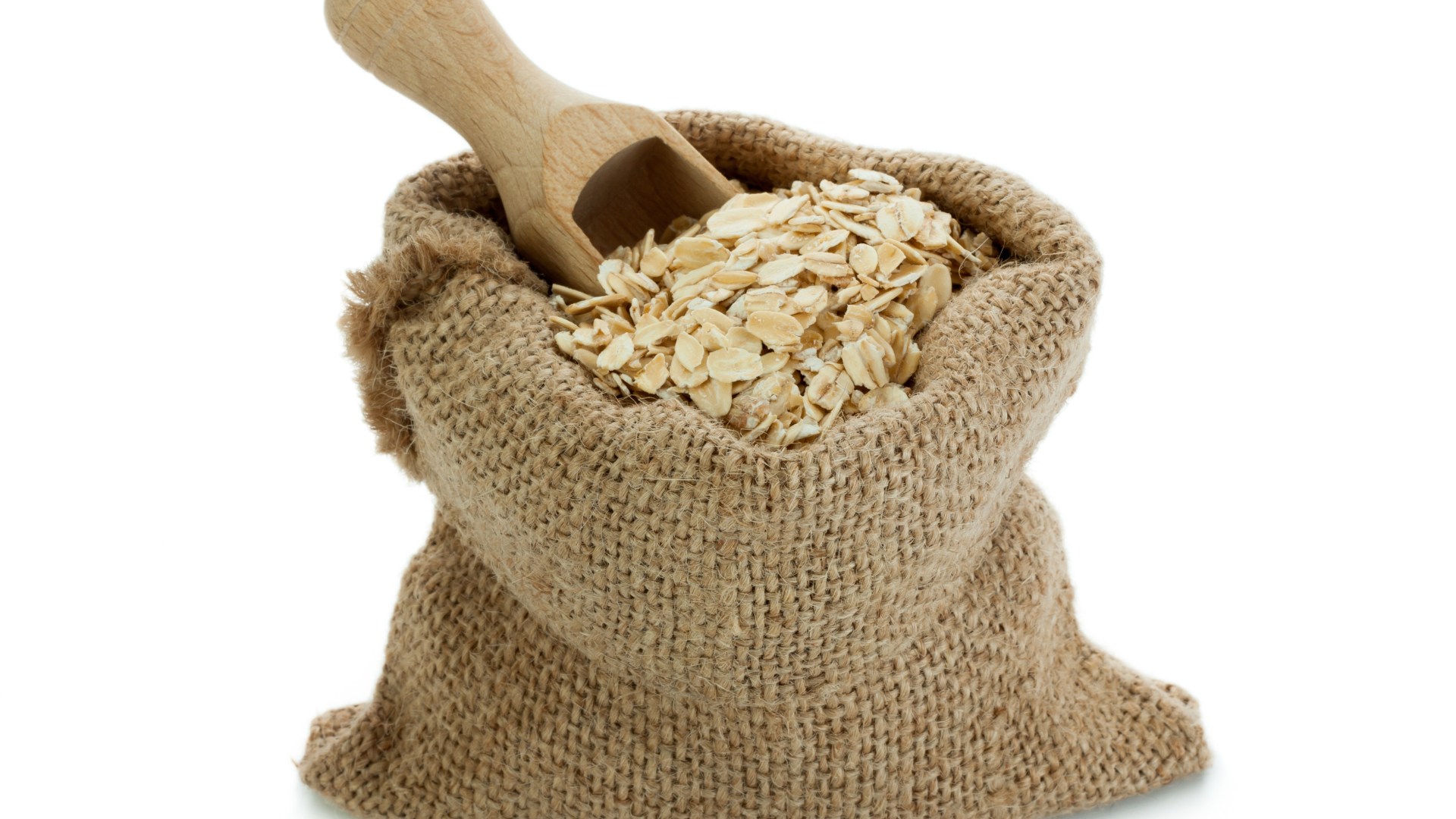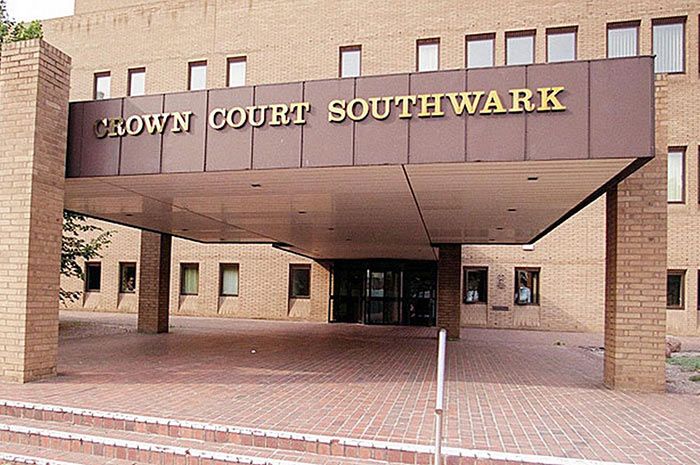Money
How thousands on state pension can get a FREE TV Licence

THOUSANDS of retirees can get a free TV licence, saving them up to £169.50 per year.
Anyone who wants live television including Sky, ITV, and BBC must obtain one.
The Government is responsible for setting the level of the licence fee.
Last December it was announced that the government would raise the licence fee by 6.7%, in line with inflation, taking effect from April 2024.
This has brought the cost of a colour licence fee to £169.50 per year and a black and white licence fee to £57 per year.
It is illegal to watch live TV without a licence, and you could be fined up to £1,000 if you’re caught.
But if you are claiming the state pension and are aged 75 or over, you could get the licence for free.
That is because anyone in this age bracket can use the service for free if they are claiming pension credit.
If you’re over 75 and not in receipt of pension credit you have to pay for a TV licence, which could be up to £169.50 a year.
You can also get a free licence if your partner claims pension credit but you do not.
To apply for a free TV licence you can visit the following website, https://www.tvlicensing.co.uk/cs/pay-for-your-tv-licence/index.app.
Alternatively, you can call the following number and apply over the phone 0300 790 6071.
But remember, you must be claiming pension credit to get the freebie.
If you are confused about whether or not you claim the payment check one of your bank statements.
You should see an entry with your National Insurance Number followed by the letters “PC”.
What is pension credit?
Pension Credit gives you extra money if you claim the State Pension and are on a low income.
If you live with a partner and you are both of State Pension age, your weekly income must fall below around £350.
However, if your income is slightly higher, you might still be eligible for Pension Credit if you have a disability, you care for someone, you have savings or you have housing costs.
You could get an extra £81.50 a week if you have a disability or claim any of the following:
- Attendance allowance
- The middle or highest rate from the care component of disability living allowance (DLA)
- The daily living component of personal independence payment (PIP)
- Armed forces independence payment
- The daily living component of adult disability payment (ADP) at the standard or enhanced rate.
You could get the “savings credit” part of pension credit if both of the following apply:
- You reached State Pension age before April 6, 2016
- You saved some money for retirement, for example, a personal or workplace pension
This part of Pension Credit is worth £17.01 for single people or £19.04 for couples.
Pension Credit opens the door to other support, including housing benefits, cost of living payments, council tax reductions and the Winter Fuel Payment.
How do you apply?
You can start your application for Pension Credit up to four months before you reach State Pension age.
To apply you’ll need to provide your National Insurance number, information about any income, savings and investments you have, and your bank account details.
If you live with a partner you’ll also need to provide their details.
You can apply online here or by calling 0800 99 1234.
Other ways to get a discounted TV licence
You could be eligible for a discounted TV licence if you live in residential care or sheltered accommodation, or if you’re registered blind.
If you live in sheltered accommodation or residential care and are over 60 or disabled you can get a licence for just £7.50.
If you’re registered blind, or live with someone who is, you’re in line for a 50% discount.
The licence must be in the name of the person registered blind, but if your existing licence is not in their name, you can apply to transfer it.
You can apply for the discount on the TV Licensing website.
Are you missing out on benefits?
YOU can use a benefits calculator to help check that you are not missing out on money you are entitled to
Charity Turn2Us’ benefits calculator works out what you could get.
Entitledto’s free calculator determines whether you qualify for various benefits, tax credit and Universal Credit.
MoneySavingExpert.com and charity StepChange both have benefits tools powered by Entitledto’s data.
You can use Policy in Practice’s calculator to determine which benefits you could receive and how much cash you’ll have left over each month after paying for housing costs.
Your exact entitlement will only be clear when you make a claim, but calculators can indicate what you might be eligible for.
Money
Five healthy ways to bulk out your batch meals to save you time and cash

BATCH cooking saves time and cash, plus can help you enjoy tastier and nutritious meals.
You can also make grub go further by adding cheaper foods to balance out pricier ingredients such as meat.
Here’s how to affordably bulk out your meals so you have more to save and freeze for another day.
OATS: Typically seen as a breakfast meal, but a handful or two can be used to thicken almost any sauce and add substance.
Use fine- milled varieties or blitz in a processor to help them blend in. Packs can be found for less than £1.
PULSES: Packed with protein and nutrients, beans and pulses are an excellent way of adding variety to dinners without breaking the bank.
READ MORE MONEY SAVING TIPS
Kidney beans are often found in chilli con carne but you could add a tin of black beans too (49p at Tesco).
Lentils work well with a cottage pie mix and chickpeas are excellent added to curries.
FRIDGE RAID: Many people follow recipes word for word, but often you can adapt to use up ingredients you already have.
Check your fridge for vegetables that can be added.
Tomatoes, broccoli, peppers and the like are incredibly versatile and work in many sauce-based dinners, helping to cut down on waste and increase the volume of your meal.
FROZEN VEG: Stretch out meals and add nutrients by adding a couple of handfuls of frozen veg such as peas, sweetcorn or broad beans.
Keeping these in the freezer ensures they won’t go bad before you use them and can be used in many dishes.
RICE: Add a couple of handfuls of rice to soup, casseroles and stew for a heartier and fuller meal with extra texture and minimal costs.
POTATOES: Chopped spuds are perfect for adding to curries and stews.
You can par-boil or just make sure you cook sauces long enough to get your potato nice and fluffy.
- All prices on page correct at time of going to press. Deals and offers subject to availability.
Deal of the day
BRUSH up on your dental hygiene with the Oral-B pro 3, down from £100 to £35 at Argos.
SAVE: £65
Cheap treat
FILL your home with a luxury scent with Deluxe candles, £3.99, in Lidl this week.
What’s new?

SWEETEN up festivities with limited-edition packs of Haribo’s merry mix, £1.25 from Asda.
Top swap
WITH flavours of cherries, chocolate and vanilla, 19 Crimes cabernet sauvignon, £10.99 at waitrosecellar.com, is a delicious full-bodied red.
Or sip on Aldi’s The Reprobates, £7.19, for a similar taste.
SAVE: £3.80
Little helper
IN partnership with charity Cahonas,
Heck has rebranded as Check on chicken sausage packs this month to encourage men to look for signs of testicular cancer.
Shop & save
GIVE any outfit a touch of the wild with these animal print ankle boots, down from £45.99 to £27.59 at New Look.
SAVE: £18.40
Hot right now
HOMEWARE brand La Redoute is now available at Next, where shoppers who buy two La Redoute products will save ten per cent.
PLAY NOW TO WIN £200
JOIN thousands of readers taking part in The Sun Raffle.
Every month we’re giving away £100 to 250 lucky readers – whether you’re saving up or just in need of some extra cash, The Sun could have you covered.
Every Sun Savers code entered equals one Raffle ticket.
The more codes you enter, the more tickets you’ll earn and the more chance you will have of winning!
Money
SNG secures £100m AIB funding to boost affordable homes pipeline

SNG aims to develop 25,000 affordable homes over the next decade.
The post SNG secures £100m AIB funding to boost affordable homes pipeline appeared first on Property Week.
Money
Pair convicted over £1.5m crypto investment fraud


Two individuals have been convicted for their roles in a £1.5m investment fraud.
Raymondip Bedi, 35, and Patrick Mavanga, 40, pleaded guilty to fraud, money laundering and carrying out regulated activity without authorisation.
Mavanga also pleaded guilty to possession of false identification documents and perverting the course of justice.
The duo was part of a group that defrauded at least 65 investors out of £1,541,799.
Between February 2017 and June 2019, the group cold-called consumers, directing them to a professional-looking website where they were offered high returns for fake investments in crypto.
The jury at Southwark Crown Court were unable to reach a verdict on a third defendant, and they will face a retrial in September 2025.
A fourth defendant, Rowena Bedi, was acquitted of money laundering. A further individual, Minas Filippidis, is wanted in relation to the same offences.
Bedi and Mavanga will be sentenced at a later date.
The criminal proceeding was brought by the Financial Conduct Authority after the defendants were arrested last April.
The Financial Conduct Authority’s joint executive director of enforcement and market oversight, Steve Smart, said: “Bedi and Mavanga lured investors with promises of high returns on crypto investments, but their schemes were nothing but a callous scam.
“If you’re contacted out of the blue about an investment opportunity that sounds too good to be true, then it probably is. If you’re in any doubt – don’t invest.”
Money
Full list of drinks brands that have quietly cut alcohol strengths – which ones have you noticed?

A HOST of beers, ciders and wines have been quietly weakened – leaving shoppers demanding a return to their original strength.
Analysis by the Sun has uncovered a raft of booze sold in supermarkets which now have lower alcohol contents – most likely in response to hikes in booze duty by the Government.
In many cases the weakened drinks have also risen in price – a phenomenon known as “drinkflation”.
Bottles of Banks’s Amber Ale were changed from 3.8% to 3.4% in the middle of last year, while the price went up from 89p to £1 in Tesco.
One reviewer wrote on the Tesco website: “Been buying it for years but will stop now. I would also rather pay more for quality.
“There should be a petition to change it back to its original taste and abv.”
Read more on food and drink
A spokesman for the Carlsberg Marston’s Brewing Company Group, which makes Banks’ Ale, said its reduced ABV “supports moderation”, and argued the product still has “great taste and quality”.
Meanwhile Compton Orchard Medium Dry Cider is now 4%, down from 5% last year.
Its manufacturers said the Government’s duty hikes had impacted the firm, but it added that customers also wanted lighter options now so it supplies a range of products with different strengths.
Wines have been impacted – with Sun Online previously revealing how mainstream brands including Blossom Hill and Hardys have lowered their ABVs following tax hikes.
Today we can expose further reductions. Taparoo Valley Australian Shiraz, sold by Tesco, was 14% in July 2022, at a cost of £3.99 for a 75cl bottle, but it has since fallen to 11%, with the same volume costing £4.15.
One reviewer wrote: “This wine has steadily been reduced in alcohol % which has destroyed any value for money that it had . Thin and lacking in any varietal characteristics but what can you expect for the price?”
Caparelli Italian Rose Blush 75Cl, also sold only in Tesco, has fallen from 12% to 11%, but increased from £4.29 to £5.50 in two years.
Meanwhile Tesco Green Ginger Wine has been reduced from 15% in 2022, when it was sold as fortified wine, to its current level of 11.5%. The price has also increased from £3.75 to £4.50.
Tesco said of the changes: “We work with our suppliers to ensure that our own-brand wines offer great taste and value for our customers.”
The UK Government’s alcohol duty reforms introduced in August last year resulted in the biggest increases in booze duty in almost 50 years.
The duty paid on a bottle of still wine was pushed up by 20%, or 44p, based on an average alcohol strength of 12.5% ABV.
Wines that are 11% currently have a £2.35 duty imposed on each bottle, whereas any between 11.5% and 14.5% command a flat tax rate of £2.67.
How much weaker have drinks become?
Here we reveal the ABV before and after “drinkflation”.
- Banks’s Amber Ale: 3.8% to 3.4%
- Compton Orchard Medium Dry Cider: 5% to 4%
- Taparoo Valley Australian Shiraz: 14% to 11%
- Caparelli Italian Rose Blush: 12% to 11%
- Tesco Green Ginger Wine: 15% to 11.5%
- Carlsberg Danish Pilsner: 3.5% to 3.4%
- Grolsch Premium Pilsner: 3.5% to 3.4%
For that reason many bottles were pushed down to 11%.
From February, duty rates will change again with a new system of taxation introduced to penalise higher strength drinks, and Labour has pushed through the change in last week’s Budget.
Under the new regime, the single amount of duty paid on wines between 11.5 and 14.5% ABV – £2.67 – will be replaced with increasingly higher payable amounts according to the strength of the wine.
That means a 75cl bottle of wine at 14.5% ABV will see wine duty increase from £2.67 per bottle to £3.21, based on a predicted RPI inflation rate of 3.65%.
But for an 11% bottle the duty payable will be much less at £2.43, an enormous difference of 78p.
The resulting array of weakened plonks have been dubbed “Rishi wines”, after the former Prime Minister who championed the reforms.
UN-BEER-LIEVABLE
Booze producers are also being incentivised to produce lower strength beers, with 3.4% bevvies falling into a lower tax bracket than 3.5% ones.
As a result Carlsberg Danish Pilsner, Grolsch Premium Pilsner and – as revealed today – Banks’ Amber Ale have been reduced to 3.4%.
Currently beer with a strength between 1.3% and 3.4% have a duty of £9.27 for each litre of pure alcohol, whereas beer with an alcohol strength of 3.5% to 8.4% carries a duty of £21.01 for each pure litre of alcohol.
The duty payable on each of these brackets are set to rise by inflation (around 3.65%) in February.
Do you have a money problem that needs sorting? Get in touch by emailing money-sm@news.co.uk.
Plus, you can join our Sun Money Chats and Tips Facebook group to share your tips and stories
Money
Urban Logistics reveals first-half dip in asset values

Net asset value came in at £748.4m, down from £758.6m at the end of March, while rental income stood at £30.6m, up from £28.7m a year earlier.
The post Urban Logistics reveals first-half dip in asset values appeared first on Property Week.
Money
Massive NIC Hike Threatens Higher Consumer Prices: Retail and Hospitality Brace for Impact – Finance Monthly

In the recent Autumn Budget, Chancellor Rachel Reeves announced a significant increase in employer National Insurance Contributions (NICs), raising the rate from 13.8% to 15% and lowering the threshold at which employers start paying NICs from £9,100 to £5,000 per year. Set to take effect from April 2025, this dramatic NIC increase is expected to generate around £25 billion annually for the Treasury but could also lead to higher consumer prices as businesses in labour-intensive sectors like retail and hospitality brace for the financial impact.
The rise in employer NICs has sent shockwaves through sectors heavily reliant on large workforces. Industry leaders warn that this added burden could force businesses to pass on increased costs to consumers, compounding the cost-of-living crisis.
Hospitality Sector Response to Employer NIC Increase
Tim Martin, chairman of JD Wetherspoon, has highlighted that the NIC hike will add an estimated £60 million to the company’s annual costs. He warned that such a significant financial impact would likely lead to price increases for customers, mirroring the broader concerns expressed by many hospitality businesses already grappling with economic pressures.
Retail Sector Impact: M&S, Sainsbury’s, and Primark React
Marks & Spencer (M&S) projects annual costs rising by £180 million due to the NIC increase combined with other recent budget measures, such as a minimum wage hike. While M&S aims to absorb some costs, they have warned that consumers will likely see higher prices.
Sainsbury’s, one of the UK’s largest supermarket chains, echoed similar concerns, indicating that the NIC hike will lead to unavoidable cost increases. To offset these additional expenses, Sainsbury’s may need to raise prices on goods and services, which will directly impact shoppers.
Primark has voiced similar challenges, noting that while it strives to avoid price hikes, the NIC increase and mounting financial pressures mean redirecting investment to key growth areas. Primark’s approach underlines the strain the NIC rise places on even the largest retail players.
Economic Consequences of NIC Hike and Consumer Costs
The increase in employer NICs, while intended to bolster public services, raises serious concerns about inflation and higher consumer prices. Businesses across the hospitality and retail sectors warn of potentially severe economic implications, including job cuts, reduced growth, and increased costs for everyday goods and services.
How Consumers Can Prepare for Price Increases
As companies grapple with the financial impact of the NIC hike, consumers can take practical steps to mitigate higher costs:
Review Your Budget: Adjust monthly budgets to accommodate potential price increases in essential goods and services.
Utilise Discounts and Loyalty Schemes: Seek out special offers, promotions, and loyalty programs to maximize savings at supermarkets and retail stores.
Compare Prices: Use apps and websites to compare prices and find the best deals.
Bulk Buying: Purchase non-perishable items in bulk to take advantage of lower per-unit costs.
Explore Alternatives: Consider substitute products or lower-cost brands without compromising on value.
Dine In More: Reduce dining-out expenses by preparing meals at home to save on hospitality-related costs.
Cashback and Rewards: Use cashback programs and credit card rewards to minimise the impact of rising prices.
Related:Cheapest UK supermarket to shop in 2024
FAQ: Understanding the Impact of the NIC Increase on Prices
What is the new employer NIC rate?
The rate has been increased from 13.8% to 15%, starting from April 2025.
Why is the NIC rate rising?
The increase aims to raise additional revenue for public services but poses challenges for businesses and could lead to higher consumer costs.
Which sectors are most affected?
Retail and hospitality, which rely on large workforces, are particularly impacted, with companies like JD Wetherspoon, Marks & Spencer, Sainsbury’s, and Primark voicing concerns.
Will consumer prices rise?
Many businesses anticipate that the added NIC costs will lead to higher prices for consumers, though the extent may vary by sector.
How can consumers cope with higher costs?
Consumers can budget carefully, shop for deals, use loyalty programs, and consider alternative products to manage rising expenses.
The Verdict: A Difficult Balancing Act for Businesses and Consumers
The rise in employer NICs presents a formidable challenge for businesses, especially in labour-heavy sectors like retail and hospitality. While companies such as JD Wetherspoon, Marks & Spencer, Sainsbury’s, and Primark explore ways to absorb costs, passing some of the burden onto consumers seems inevitable. As these changes approach consumers must prepare for a shifting economic landscape, with increased prices and new financial strategies to cope.
-

 Science & Environment2 months ago
Science & Environment2 months agoHow to unsnarl a tangle of threads, according to physics
-

 Technology1 month ago
Technology1 month agoIs sharing your smartphone PIN part of a healthy relationship?
-

 Science & Environment2 months ago
Science & Environment2 months agoHyperelastic gel is one of the stretchiest materials known to science
-

 Science & Environment2 months ago
Science & Environment2 months ago‘Running of the bulls’ festival crowds move like charged particles
-

 Technology2 months ago
Technology2 months agoWould-be reality TV contestants ‘not looking real’
-

 Science & Environment1 month ago
Science & Environment1 month agoX-rays reveal half-billion-year-old insect ancestor
-

 Science & Environment2 months ago
Science & Environment2 months agoPhysicists have worked out how to melt any material
-

 Science & Environment2 months ago
Science & Environment2 months agoMaxwell’s demon charges quantum batteries inside of a quantum computer
-

 Money1 month ago
Money1 month agoWetherspoons issues update on closures – see the full list of five still at risk and 26 gone for good
-

 Sport1 month ago
Sport1 month agoAaron Ramsdale: Southampton goalkeeper left Arsenal for more game time
-

 MMA1 month ago
MMA1 month ago‘Dirt decision’: Conor McGregor, pros react to Jose Aldo’s razor-thin loss at UFC 307
-

 Science & Environment2 months ago
Science & Environment2 months agoSunlight-trapping device can generate temperatures over 1000°C
-

 Football1 month ago
Football1 month agoRangers & Celtic ready for first SWPL derby showdown
-

 News1 month ago
News1 month agoWoman who died of cancer ‘was misdiagnosed on phone call with GP’
-

 Science & Environment2 months ago
Science & Environment2 months agoLaser helps turn an electron into a coil of mass and charge
-

 Technology1 month ago
Technology1 month agoUkraine is using AI to manage the removal of Russian landmines
-
Business1 month ago
how UniCredit built its Commerzbank stake
-

 Technology1 month ago
Technology1 month agoGmail gets redesigned summary cards with more data & features
-

 News1 month ago
News1 month ago‘Blacks for Trump’ and Pennsylvania progressives play for undecided voters
-

 Science & Environment2 months ago
Science & Environment2 months agoA new kind of experiment at the Large Hadron Collider could unravel quantum reality
-

 Science & Environment2 months ago
Science & Environment2 months agoLiquid crystals could improve quantum communication devices
-

 Technology1 month ago
Technology1 month agoSamsung Passkeys will work with Samsung’s smart home devices
-

 Sport1 month ago
Sport1 month agoBoxing: World champion Nick Ball set for Liverpool homecoming against Ronny Rios
-

 Technology1 month ago
Technology1 month agoEpic Games CEO Tim Sweeney renews blast at ‘gatekeeper’ platform owners
-

 Technology1 month ago
Technology1 month agoRussia is building ground-based kamikaze robots out of old hoverboards
-

 Science & Environment2 months ago
Science & Environment2 months agoWhy this is a golden age for life to thrive across the universe
-

 Science & Environment2 months ago
Science & Environment2 months agoQuantum ‘supersolid’ matter stirred using magnets
-

 MMA1 month ago
MMA1 month agoDana White’s Contender Series 74 recap, analysis, winner grades
-

 News1 month ago
News1 month agoNavigating the News Void: Opportunities for Revitalization
-

 Sport1 month ago
Sport1 month ago2024 ICC Women’s T20 World Cup: Pakistan beat Sri Lanka
-

 News1 month ago
News1 month agoMassive blasts in Beirut after renewed Israeli air strikes
-

 Entertainment1 month ago
Entertainment1 month agoBruce Springsteen endorses Harris, calls Trump “most dangerous candidate for president in my lifetime”
-

 Technology1 month ago
Technology1 month agoMicrosoft just dropped Drasi, and it could change how we handle big data
-

 MMA1 month ago
MMA1 month ago‘Uncrowned queen’ Kayla Harrison tastes blood, wants UFC title run
-

 MMA1 month ago
MMA1 month agoPereira vs. Rountree prediction: Champ chases legend status
-

 Technology1 month ago
Technology1 month agoMicrophone made of atom-thick graphene could be used in smartphones
-

 Technology1 month ago
Technology1 month agoCheck, Remote, and Gusto discuss the future of work at Disrupt 2024
-

 News1 month ago
News1 month agoRwanda restricts funeral sizes following outbreak
-

 Sport1 month ago
Sport1 month agoWXV1: Canada 21-8 Ireland – Hosts make it two wins from two
-
Business1 month ago
Top shale boss says US ‘unusually vulnerable’ to Middle East oil shock
-

 TV1 month ago
TV1 month agoসারাদেশে দিনব্যাপী বৃষ্টির পূর্বাভাস; সমুদ্রবন্দরে ৩ নম্বর সংকেত | Weather Today | Jamuna TV
-

 Business1 month ago
Business1 month agoWater companies ‘failing to address customers’ concerns’
-

 Technology1 month ago
Technology1 month agoWhy Machines Learn: A clever primer makes sense of what makes AI possible
-

 Science & Environment2 months ago
Science & Environment2 months agoQuantum forces used to automatically assemble tiny device
-

 News2 months ago
News2 months ago▶️ Hamas in the West Bank: Rising Support and Deadly Attacks You Might Not Know About
-

 News1 month ago
News1 month agoCornell is about to deport a student over Palestine activism
-

 Technology1 month ago
Technology1 month agoSingleStore’s BryteFlow acquisition targets data integration
-

 Business1 month ago
Business1 month agoWhen to tip and when not to tip
-

 MMA1 month ago
MMA1 month agoKayla Harrison gets involved in nasty war of words with Julianna Pena and Ketlen Vieira
-

 News1 month ago
News1 month agoHull KR 10-8 Warrington Wolves – Robins reach first Super League Grand Final
-

 Science & Environment2 months ago
Science & Environment2 months agoITER: Is the world’s biggest fusion experiment dead after new delay to 2035?
-

 Technology2 months ago
Technology2 months agoMeta has a major opportunity to win the AI hardware race
-

 Science & Environment2 months ago
Science & Environment2 months agoA slight curve helps rocks make the biggest splash
-

 Science & Environment2 months ago
Science & Environment2 months agoNuclear fusion experiment overcomes two key operating hurdles
-

 Football1 month ago
Football1 month ago'Rangers outclassed and outplayed as Hearts stop rot'
-

 MMA1 month ago
MMA1 month agoPennington vs. Peña pick: Can ex-champ recapture title?
-

 Technology1 month ago
Technology1 month agoLG C4 OLED smart TVs hit record-low prices ahead of Prime Day
-
Travel1 month ago
World of Hyatt welcomes iconic lifestyle brand in latest partnership
-

 News1 month ago
News1 month ago▶ Hamas Spent $1B on Tunnels Instead of Investing in a Future for Gaza’s People
-

 Sport1 month ago
Sport1 month agoShanghai Masters: Jannik Sinner and Carlos Alcaraz win openers
-

 Sport1 month ago
Sport1 month agoChina Open: Carlos Alcaraz recovers to beat Jannik Sinner in dramatic final
-

 Football1 month ago
Football1 month agoWhy does Prince William support Aston Villa?
-

 Sport1 month ago
Sport1 month agoPremiership Women’s Rugby: Exeter Chiefs boss unhappy with WXV clash
-

 Money1 month ago
Money1 month agoTiny clue on edge of £1 coin that makes it worth 2500 times its face value – do you have one lurking in your change?
-

 Technology1 month ago
Technology1 month agoUniversity examiners fail to spot ChatGPT answers in real-world test
-

 Womens Workouts1 month ago
Womens Workouts1 month ago3 Day Full Body Women’s Dumbbell Only Workout
-

 Technology1 month ago
Technology1 month agoMusk faces SEC questions over X takeover
-

 Sport1 month ago
Sport1 month agoSturm Graz: How Austrians ended Red Bull’s title dominance
-

 Sport1 month ago
Sport1 month agoCoco Gauff stages superb comeback to reach China Open final
-
Business1 month ago
Bank of England warns of ‘future stress’ from hedge fund bets against US Treasuries
-

 MMA1 month ago
MMA1 month ago‘I was fighting on automatic pilot’ at UFC 306
-

 Science & Environment2 months ago
Science & Environment2 months agoNerve fibres in the brain could generate quantum entanglement
-

 Science & Environment2 months ago
Science & Environment2 months agoTime travel sci-fi novel is a rip-roaringly good thought experiment
-

 TV1 month ago
TV1 month agoTV Patrol Express September 26, 2024
-

 News1 month ago
News1 month agoGerman Car Company Declares Bankruptcy – 200 Employees Lose Their Jobs
-

 Sport1 month ago
Sport1 month agoURC: Munster 23-0 Ospreys – hosts enjoy second win of season
-

 Sport1 month ago
Sport1 month agoWales fall to second loss of WXV against Italy
-

 MMA1 month ago
MMA1 month agoHow to watch Salt Lake City title fights, lineup, odds, more
-
Business1 month ago
DoJ accuses Donald Trump of ‘private criminal effort’ to overturn 2020 election
-
Business1 month ago
Sterling slides after Bailey says BoE could be ‘a bit more aggressive’ on rates
-
Business1 month ago
Italy seeks to raise more windfall taxes from companies
-
Business1 month ago
‘Let’s be more normal’ — and rival Tory strategies
-

 Sport1 month ago
Sport1 month agoNew Zealand v England in WXV: Black Ferns not ‘invincible’ before game
-

 News2 months ago
News2 months ago▶️ Media Bias: How They Spin Attack on Hezbollah and Ignore the Reality
-

 Science & Environment2 months ago
Science & Environment2 months agoHow to wrap your mind around the real multiverse
-

 Technology1 month ago
Technology1 month agoJ.B. Hunt and UP.Labs launch venture lab to build logistics startups
-

 Technology1 month ago
Technology1 month agoAmazon’s Ring just doubled the price of its alarm monitoring service for grandfathered customers
-

 Technology1 month ago
Technology1 month agoQuoroom acquires Investory to scale up its capital-raising platform for startups
-
Business1 month ago
The search for Japan’s ‘lost’ art
-

 MMA1 month ago
MMA1 month agoKetlen Vieira vs. Kayla Harrison pick, start time, odds: UFC 307
-

 Technology1 month ago
Technology1 month agoThe best shows on Max (formerly HBO Max) right now
-

 Technology1 month ago
Technology1 month agoIf you’ve ever considered smart glasses, this Amazon deal is for you
-

 MMA1 month ago
MMA1 month agoKevin Holland suffers injury vs. Roman Dolidze
-

 News1 month ago
News1 month agoTrump returns to Pennsylvania for rally at site of assassination attempt
-

 Sport1 month ago
Sport1 month agoMan City ask for Premier League season to be DELAYED as Pep Guardiola escalates fixture pile-up row
-

 Technology4 weeks ago
Technology4 weeks agoNintendo’s latest hardware is not the Switch 2
-

 Technology4 weeks ago
Technology4 weeks agoThe FBI secretly created an Ethereum token to investigate crypto fraud
-

 MMA1 month ago
MMA1 month agoUFC 307’s Ketlen Vieira says Kayla Harrison ‘has not proven herself’
-

 News1 month ago
News1 month agoHarry vs Sun publisher: ‘Two obdurate but well-resourced armies’
-
Politics1 month ago
‘The night of the living dead’: denial-fuelled Tory conference ends without direction | Conservative conference










You must be logged in to post a comment Login